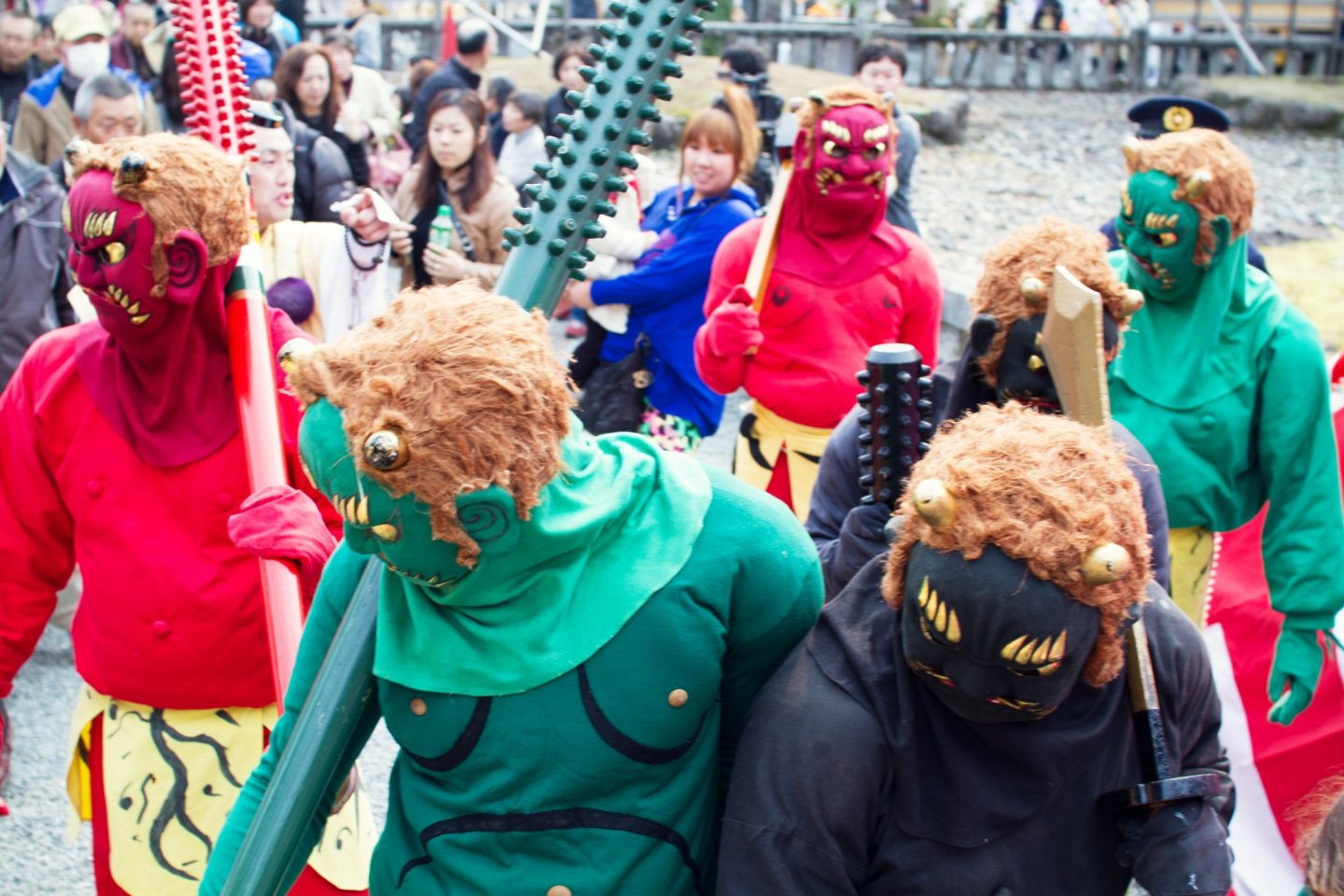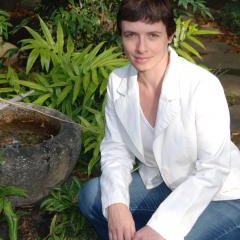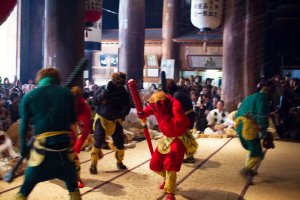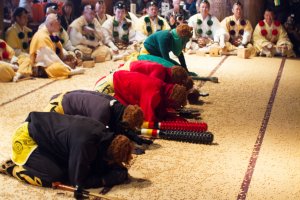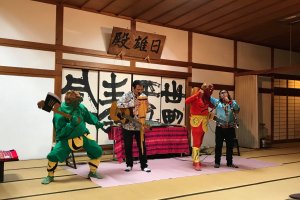Embrace your demons on Yoshinoyama and welcome spring protected and purified!
Oni wa soto ("demons out") is the motto all over Japan at Setsubun (Feb 2), the official start of spring in Japan.
On Yoshinoyama, however, it is "oni mo uchi" ("demons in").
The locals of this mountain welcome "good oni" into their houses, at restaurants, inns and temples ever since mountain wizard En no Gyoja, the Founder of the ancient tradition of Shugendo, tamed a demon couple, Zenki and Goki, 1,300 years ago.
Zenki and Goki were "bad demons" but En no Gyoja turned them into good guys, after they apologised for their misdeeds. From then on they helped their master, En the Ascetic Monk.
If you want to know more about this local legend and shake hands with some demons, then visit Yoshinoyama on February 1 and on Setsubun day on February 2!
On February 2, oni walk around in the main street of Yoshinoyama from 7pm to 8pm and from 8.20pm a taiko (Japanese drum) performance is held in front of Zao Do, the main hall of Kinpusen-ji Temple.
On February 2 from 11am oni dance in the Zao Do - Oni Odori -, watched carefully by many Yamabushi, the followers of Shugendo. From noon there is a fire ceremony, called Goma in Japanese, at the Zao Do, and at 1pm the bean throwing ceremony - Mame maki - starts. The aim of this bean shower is to drive all bad things out and welcome good things. There is a bit of a lottery going on too: if you find a lucky number mixed in with the beans, then you have won something!
On February 2 from 11am to 2pm the Okamisan, the lady owners of the local ryokan and minshuku, offer different local dishes for visitors to get a taste of Yoshinoyama Omotenashi, the local's warm hospitality.
Alternatively, check out Yoshinoyama's culinary specialties: kaki no ha sushi (sushi wrapped in persimmon leaves) and kudzu mochi (Japanese sweets made from arrowroot). Or how about kamo udon (duck udon) or kamo hamburger? There is also kamameshi (rice dish cooked in an iron pot) and home-made soba or home-made tofu. So delicious!
On two Saturdays before Setsubun and on the Saturday after Setsubun free live music events are held in the evening at temples and venues on Yoshinoyama.
Visitors can also enjoy the "Oni Bar": participating restaurants and cafes serve guests drinks, food and snacks at a reduced price.
Yoshinoyama is famous for its cherry blossoms in April but if you come during summer, autumn or winter, you will also find many nice places to go to and be able to refresh your body and mind.
In February it is cold and often snowy on Yoshino Mountain but a walk through the main street lined with quaint shops, restaurants and cafes is enjoyable. For those who want to venture further afield, why not hike up the mountain all the way to Yoshino Mikumari-jinja Shrine or Kinpu-jinja Shrine, located at the highest point of Yoshinoyama.
If you get cold, you can try the Higaeri Ofuro, a Japanese bath open to day trippers, at Hounoya Ryokan or at KamKam Minshuku.
Above all, enjoy a day trip away from the city, or even stay overnight on Yoshinoyama. Several minshuku offer a "festival plan" with a reduced price.
